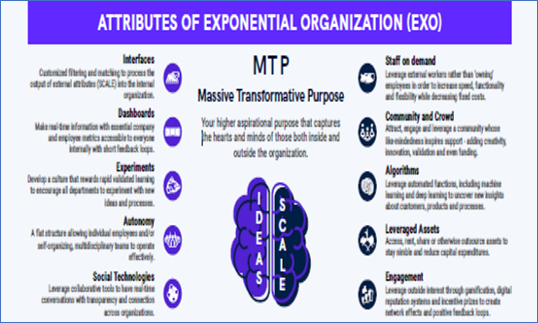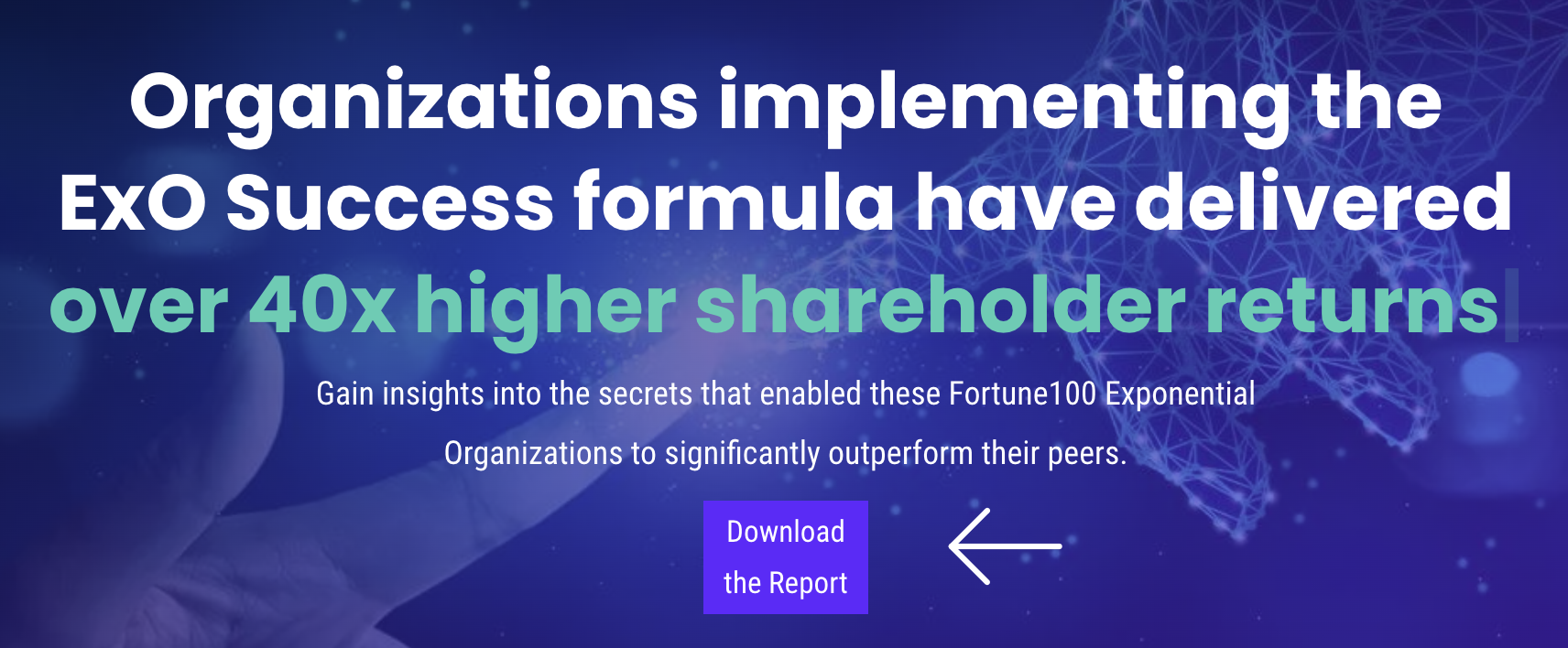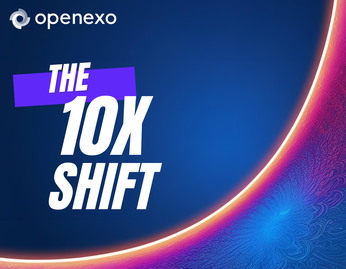
TOP100 Exponential Organizations - The Lessons Learned From Those Who Thrived and Perished
The Top100 Exponential Organizations, identified in 2015 - Who Were They AND How have some of them fared over the years? And, what can we learn from their successes and perhaps more so the failures? After all, mistakes are not the problem; the problem is not correcting them.
Exponential Organizations, written by three luminaries - Salim Ismail, Michael Malone, and Yuri Van Geest debuted as a best seller on Amazon in October 2014. The book highlighted the thesis that the Unicorns worked out how to scale in a completely new way, to achieve performance benchmarks ten times better than their peers. The book got rated as the top 5 Business Books by Fortune Magazine and was further recognized as Frost & Sullivan’s GIL (Growth, Innovation, and Leadership) Book of the Year.
The eponymous book outlined a formula for developing 10x better, bolder, and cheaper concepts and driving them 10x faster through to implementation – Establishing an MTP (Massive Transformative Purpose) AND thereon tapping into and manage the abundance of opportunities available – to be scalable and adaptable by embracing the ten additional exponential attributes of SCALE + IDEAS.
As part of the book writing, Salim worked with a group of 160 ExO experts across 45 countries to research and grade multiple start-ups and scale-ups founded after 2005, as well as several incumbent organizations using a diagnostics of their Exponential Quotient (ExQ).
This ExQ was an aggregate score compiled from responses to a set of twenty-one questions (modified over the years to include 4 additional questions as part of the ExQ Survey) that reveals where an organization stands against the different exponential attributes.

This Exponential Quotient assessment resulted in a list of the TOP100 Exponential Organizations (the most scalable and adaptable) among the large number of companies assessed.
While a significant number of the Top100 Exponential Organizations were based out of the USA (74), several other firms based across other countries including 7 from the Netherlands, 4 from the UK, and 3 from China found a place in the Top100 rankings.
Some of the other countries of origin of these Top100 Exponential Organizations being Australia, Finland, France, Denmark, Germany, India, Ireland, Luxemburg, and Sweden.

When it came to specific industry sectors, the Top100 Exponential Organizations were operating across very diverse arenas (including some which hadn’t even existed until a few years ago). The prominent sectors were Software (21 firms), Social Media (10), Media (8), E-Commerce (7), Finance (6), and Information Technology with 5 firms.
We also had firms from Food, Healthcare, Communication, Micro Finance, Consumer Durables, Electronics, Infrastructure, 3D Printing, Education, Apparel, Human Resources, and FMCG arenas.

The Exponential Quotient assessment had resulted in some large established organizations with valuations of more than $100 billion, such as Amazon, Alibaba, Apple, Facebook, General Electric, and Google, getting featured in the Top100 Exponential Organizations list.
Rubbing shoulders with these giants were the new stars that had reached valuations of more than $5 billion, such as Airbnb, Uber, Pinterest, Xiaomi, Netflix, Salesforce, Twitter, Square, Groupon, Dropbox, Spotify, and Tesla.
And joining them were the newly crowned unicorns with valuations greater than $1 billion (but less than $5 billion), such as Github, Tumblr, Etsy, Cloudera, BlaBlaCar, Evernote, Flipkart, and Slack, amongst others.
At the same time, several of the Top100 constituents were the potential emerging stars – the scaleups and even start-ups with valuations of less than $1 billion. These were relatively unknown corporate brands (at least at that point in time - globally, and even in some cases within their country of origin). For e.g., Reddit, 3D Hubs, Coursera, Coinbase, TransferWise, and Duolingo.

All of these Top100 Exponential Organizations shared some key noteworthy characteristics.
They all had a Massive Transformative Purpose (MTP) and had leadership that wanted to create and leverage abundance toward a better future. They were exploring and exploiting disruptive technologies such as Artificial Intelligence & Machine Learning, 3D Printing, Robotics, Blockchain, Internet of Things (IoT), and Cloud amongst others towards not just digitization but more significantly dematerialization, democratization, and demonetization across different industries and arenas.
They were either driving or changing consumer behaviors. They were pursuing strategies and practices to be scalable, adaptable, and flexible.
They were targeting and expected to break the mold and be different from the conventional organizations seen in the 20th century, and hence potentially deliver different outcomes.
In fact, Salim Ismail had said the below in the Exponential Organizations book.
Since the Exponential Quotient assessment was undertaken nearly eight years back, the business world has become even more volatile, uncertain, complex, and ambiguous (VUCA). And the COVID-19 crisis certainly brought along an even more rapid acceleration of change.
From the list of the top100 Exponential Organizations, over the last few weeks, we deep-dived into a few of the DISRUPTORS WHO THRIVED to gain insights into the key growth levers and success factors.




So, what did these successful organizations do?

At the same time, there have been a few amongst the list of the top100 Exponential Organizations who didn't deliver. Over the last few weeks, we also deep-dived into a few of the DISRUPTORS WHO PERISHED to gain insights into the key failure modes.



So, what went wrong with these organizations?
While none of these organizations have gone bust, they haven't certainly been successful - At least not as much as they promised OR in fact as much as they could have, given the fact that they were once an exponential organization.
Was it just bad luck or bad timing? Well - not really.
All the cases of failures we looked into - it was always linked to the internal organization - the strategic choices they made (or lack thereof) and what one could call the strategy execution gap.

While one could argue that hindsight is always 20:20, analyzing the core reasons behind the fall of these disruptors can certainly teach entrepreneurs, business leaders, and investors alike to become better at what they do. Besides, understanding failures is crucial since so many accounts of innovation focus on the successes and so are affected by survivorship bias.
Building a successful company is no easy task, and business leaders and entrepreneurs often find themselves battling against all odds. From this perspective, it might be worthwhile and interesting to look at 2 of the biggest success stories of the modern era AND what happened just before they became the icons of today.
Bill Gates — Traf-O-Data then Microsoft
Before Bill Gates’ successful attempt at Microsoft, he failed at what was then known as Traf-O-Data. Traf-O-Data was his first company made with the objective of providing raw traffic data reports to traffic engineers for optimizing traffic and bringing an end to road congestion.
However, the machine that was made for the above cause failed in its testing phase at a local county and could not grow into a successful business. But this did not stop Bill Gates to keep going for what is now known as Microsoft.
Jeff Bezos — Amazon’s zShops
Something similar happened with Amazon back in September 1999 when Jeff Bezos launched zShops. The idea behind zShops was quite similar to that of eBay, to build a platform where all sorts of online sellers can auction their products through their online storefront. His idea failed miserably, so much so that Jeff Bezos used to joke that the only customers who had ever visited a zShop were his parents and himself. However, he never gave up and through his perseverance made Amazon into what it is today.
Only 10 percent of the Fortune500 companies that were around in 1955 are still part of the prestigious list. The rest 90 percent have either gone bankrupt, merged, or still exist but are no longer in the top 500.
As an entrepreneur founder of a startup or a scale up OR a business leader of a mid-sized or large incumbent organization, one must be open to accepting that while failure is not inevitable, it's certainly evident. And we must heed the invaluable lessons the successes and failures of the Top100 Exponential Organizations have presented us.

What key success factors amongst those identified from the success stories can you relate to? Which ones of those are visible in your organization?
And, in the same length - which key failure modes amongst those identified from the cases of downfall can you relate to? Which ones of those are visible (or worse off potentially hidden) in your organization?
Answering these 2 questions could/should be at the top of your agenda as a business leader or an entrepreneur. And, if you haven't done it already - ask yourself another key question - what's the Exponential Quotient (ExQ) of your business/organization?
If you are scoring high on the ExQ AND have more growth levers than the failure modes - WONDERFUL, you are on the right path.
However, if it's the other way around - it's time to reflect and ask yourself - Do you truly want to be disrupted? OR, would you like to make some conscious choices to change your organization's destiny and become future-ready?

ExO Insight Newsletter
Join the newsletter to receive the latest updates in your inbox.










